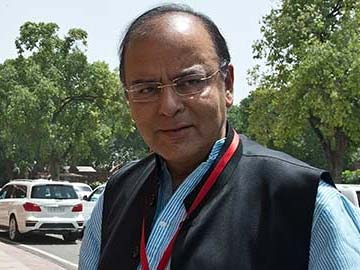
The two-month-old Narendra Modi government is set to push its first big reforms; it is expected to introduce in Parliament today, the Insurance Amendment Bill and the Sebi Act, which seeks to provide more teeth to the market regulator.
Here's Your 10-Point Cheat-Sheet to This Story:
The Insurance Laws (Amendment) Bill aims to raise the ceiling on foreign direct investment (FDI) in insurance to 49 per cent from the current 26 per cent limit.
This marks a reversal from the BJP's earlier stance when it was in Opposition. It had then opposed raising the cap on FDI in insurance from 26 per cent. But last year it said it was not against raising the limit on FDI in insurance, but wanted certain caveats and conditions to "safeguard the interest of the people".
The BJP-led NDA has a brute majority in the Lok Sabha and the bill will sail through. It will need the Congress' backing in the Rajya Sabha where it is in a minority.
The Congress has indicated that it might not block the bill, but spokesperson PC Chacko sought to remind the BJP that when its government had pushed this reform, Mr Modi had tweeted that the UPA was attempting to sell the country. "We have lost a valuable one year's time," Mr Chacko said, adding that his party will check to see if the provisions of this bill match those of the UPA's.
The Congress-led UPA government had first proposed the Insurance Laws (Amendment) Bill in 2008 to hike foreign holding in insurance joint ventures to 49 per cent. It had tried to introduce the bill again last year.
The 49 per cent FDI that the BJP-led NDA government proposes will be a composite cap - which means that foreign capital can flow in either as direct investment or via the portfolio route, or as a combination of both. So foreign investors can either directly buy equity from the company or can buy shares on the stock market.
The new measures will allow insurance companies to list on stock exchanges. Barring public sector insurance companies, all other insurance companies will potentially benefit from a higher FDI cap.
To allay fears that Indian entities may lose control, the bill provides that management must remain with India companies. And the approval of the Foreign Investment Promotion Board (FIPB) will be needed on any investment over 26 per cent.
Experts said last week that a higher foreign direct investment limit in insurance could result in inflows of Rs. 40,000 crore to Rs. 60,000 crore over time, and immediate inflows of around Rs 20,000 crore.
Both the Insurance bill and the Sebi bill were cleared by the union cabinet last week, days after Finance Minister Arun Jaitley made a promise to do so in his Budget speech, noting that "The insurance sector is investment starved. Several segments of insurance sector need expansion."

